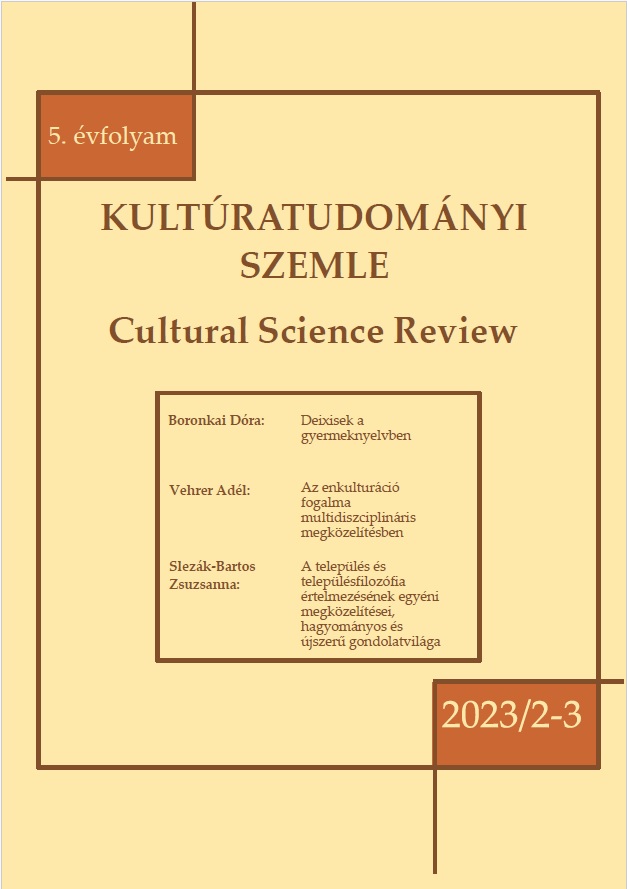Antrozoológia és filozófiai praxis
DOI:
https://doi.org/10.15170/KSZ.2023.05.02.15.Absztrakt
Anthrozoology and philosophical practice
Parallel to the philosophical practice movement that was revived in the 80s, human-animal studies, sometimes known as anthrozoology or animal studies, is gaining more and more ground to this day in the Western academic world. In my paper, I demonstrate today’s dog keepers, as the walking philosophers of the 21st century, by outlining the turns of thought leading to the discipline of human-animal studies through Harriet Ritvo’s 2007 animal turn. With the examination of the social role of XXI. century Western urban dog keeping in the light of the philosophical café movement, I argue for the idea that urban dog keeping is an alternative form of philosophical lifestyle and, moreover, a significant example of philosophical practice. If we accept the thesis that the dog has always been present next to humans, then the relevant question is how it is present in humans’ lives now, and if it is different than before, then what are the reasons behind this. Analysing Ritvo’s animal turn and the practical turn in philosophy, I draw conclusions regarding the reasons for the changes in the posthuman, arriving at the presentation of the idea of critical dog studies, in short, dogism, which is the author’s research area and invention.

